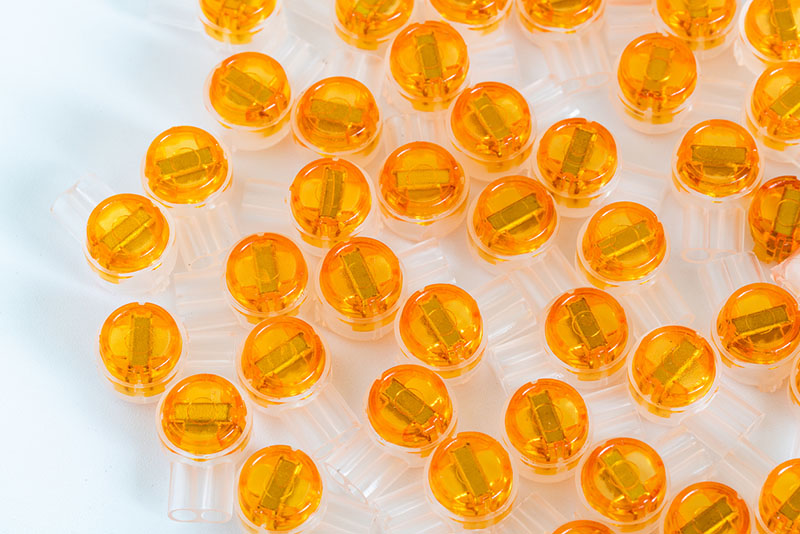
Modern manufacturing is thriving because of innovative and versatile materials. Take plastics, for example. That’s a thriving market, with a 7% year-on-year increase as demand from various businesses grows. Phenolic plastics are some of the most distinctive materials used in everyday items. Applications include electrical components, automobile parts, and medical instruments.
They’re cost-effective, durable, and heat-resistant. With so many everyday uses, it’s no wonder that knowledge about this material is in demand. But what exactly is phenolic plastic, what are the benefits, and how is it used? This blog post has all the answers.
Phenolic plastic is a unique material created in 1907 by Leo Baekeland. He wanted to discover types of plastic that could tolerate high temperatures and better manage electric power than the other plastics. So, he mixed phenol and formaldehyde to create Bakelite. That was the first plastic that could withstand heat and keep its shape. In modern manufacturing, you make phenolic plastic by mixing phenol, tannin, and resorcinol with formaldehyde. The result is solid material.
The fabrication process to shape the material requires heat and pressure. You add a layer of resin, heat it, and apply pressure.
Phenolic industrial plastic has lots of advantages. Here are some of the benefits you should know:
Phenolic plastic is an excellent electrical insulator. It keeps electricity safe and working correctly. It’s excellent at preventing shocks and short circuits and can work in hot and wet conditions. This is becoming more crucial as technology advances.
Phenolic plastic offers thermal stability while providing excellent insulation. That makes it a good fit for parts that need to handle extreme heat. It can last up to 350°C and has a high glass transition temperature. So it works well in many industries, like electronics, automotive, and aerospace.
Phenolic plastic is a popular material because its unique chemical makeup makes it resistant to many chemicals. Examples of these include acids, oils, and solvents.
That is why it’s often used in chemical refineries and industrial plants that are exposed to harsh chemicals. It’s made up of a combination of hydrocarbons and phenol. That helps it to form strong layers that can withstand corrosive chemicals. It’s also hard, so it doesn’t get weaker when exposed to chemicals.
Phenolic plastic is one of the most attractive material options when you want something lightweight. It’s perfect for creating items that need to offer strength even with light weights.
Many companies want to save money, while still using types of materials that offer quality and robustness.
Phenolic plastic is an excellent choice because it is cheaper than other types of plastic but still meets a high standard. It’s a cost-effective choice for many industries, as we’ll explore in the next section.
Phenolic plastic has a range of applications. Here are some examples of where it’s used across various industries:
Aerospace businesses use phenolic plastic for engine, plane, and exhaust system parts. It’s light and can withstand heat and chemicals, making it perfect for these jobs. Phenolic plastic is also used to build electrical parts and insulators for planes. It’s good to use in places like the inside of an aircraft because it won’t give off smoke or catch fire easily.
Phenolic plastic can be used to make covers that protect components outside since it can handle UV light and harsh weather.
Manufacturers make some medical equipment using phenolic plastic. It’s valuable because it can resist fire and water and withstand extremely high and low temperatures. So, it’s great for things like incubator and autoclave components, which must always stay safe and steady.
Sterilization trays are another common application. The phenolic plastic stops bacteria and fungi from growing. It is also resistant to damage by acids or other harsh chemicals. So it’s perfect for sterilizing things.
Hospital furniture parts are often made from phenolic plastic as well. It’s ideal for medical settings because it won’t get stained, scratched, or damaged easily.
Phenolic plastic is also an excellent choice for the electrical parts inside a car. It’s a good insulator and can survive in exceptionally hot temperatures. Phenolic plastic is also excellent for exhaust manifold components. It’s heat resistant to handle the heat from the exhaust system.
Phenolic plastic is also an excellent material for making seals and gaskets because it’s versatile and can withstand heat, chemicals, and moisture.
Phenolic plastic is able to stop electricity from passing through, which makes it perfect for items like switchboards and circuit boards. Phenolic plastic also makes insulating boards, covers, and liners. It’s excellent for high temperatures and resists fire, so it’s good for things that need protection in extreme temperatures or from fires.
So, what is phenolic plastic used for? As a durable, heat-resistant material, phenolic plastic is widely found in many common items, from electrical components to medical instruments to auto parts. Plus, the manufacturing process of creating phenolic plastic is relatively simple and cost-effective. So that makes it a popular and easily-accessible material.
Our precision engineering materials are the perfect place to start when looking for the right plastic for your manufacturing. Find out more by heading to our contact page for a quote.